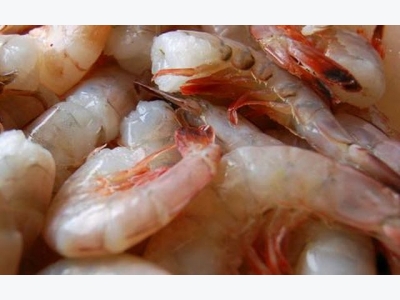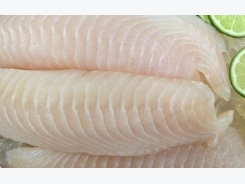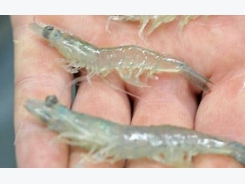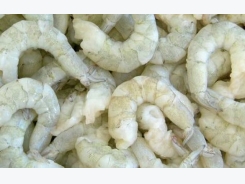Whats behind the battle against farmed shrimp imports?

The Southern Shrimp Alliance (SSA) is fighting for a fair deal on trade. Will they get it?
The Southern Shrimp Alliance (SSA) is working on behalf of US Gulf of Mexico shrimpers to get what they say is a fair deal on trade. IntraFish spoke with Executive Director John Williams about its plan to make that happen.
The SSA, founded in 2002, represents the interests of shrimp fishermen, processors and other interests in the warmwater shrimp producing states of Alabama, Florida, Georgia, Louisiana, Mississippi, North Carolina, South Carolina and Texas.
Part of the original mission of the group was to combat what the group saw as unfairly traded imported shrimp, which depressed prices and posed unfair competition in the US market for wild harvesters.
There are currently 1,433 Gulf of Mexico shrimp permits held across the Gulf states.
We spoke with SSA Executive Director John Williams about the key challenges facing the wild shrimp sector, and how new political developments are changing the outlook for wild shrimp in America.
The election of Donald Trump has come with a lot of trade rhetoric. Do you think his push to ‘Buy American’ will actually have positive results on the Gulf shrimp industry?
We hope that it results in a procurement process that values US- produced shrimp. I think people assume that “Buy American” policies give our industry a market that is shielded from import competition, but in reality the federal government buys a lot of imported shrimp. Over the years, the Southern Shrimp Alliance -- and other domestic shrimp interests -- have attempted to increase our presence in this market without success. We are always hopeful that whatever administration is in control of our government that we will be treated fairly and on the same level as imported products. I would imagine that all domestic industries have the same hopes regardless of the product.
The ITC recently ruled to keep antidumping duties in place for some Asian countries exporting frozen shrimp into the US. Are trade wars really the best way for wild producers to fight farmed product?
Our first concern is keeping shrimpers working. Over the last 15 years, our industry has improved efficiency, improved quality and put substantial resources behind marketing. Whatever we do, however, prices in this market are determined by imports. I think our wild-caught shrimp is a great product and that consumers understand its merits compared to farm-raised shrimp. But if imported shrimp is one or two bucks a pound cheaper than our shrimp, we’re going to continue to lose the market.
The US shrimp industry is heavily regulated and we are not subsidized. We are required to compete for sales with foreign industries that have comparatively minimal regulations and get massive government support. Our ability to address these discrepancies is limited by what our laws provide as available remedies. We’re criticized for stoking trade wars, we are referred to as protectionist, creating trade barriers, but the extent of what we have in place is antidumping duty orders on shrimp from four countries. These limited trade remedies have brought stability to the market and, as much as they complain, have been as beneficial for importers and seafood distributors as they have been for our industry.
The term “trade war” is certainly not what is happening with the antidumping duty orders. Contrary to what some importers and exporters say, it is illegal behavior on their part. As you know, any shrimp that is placed into the US market below fair value distorts the market which, by the way, is the same market that the domestic industry has to sell into. This is not a “trade war” but rather an attempt by the domestic industry to correct illegal behavior that causes injury to our shrimp industry and upsets the balance of a fair market.
What I can’t understand is why more importers aren’t trying to correct this problem also, as it affects their business as much as the domestic shrimp industry. Between the illegal use of banned antibiotics and pesticides, transshipping to avoid the antidumping duties and US FDA Import Alerts due to food safety for American consumers and the illegal use of slave and child labor, this is not a “trade war” but more like a crime wave that needs to be addressed. The fact is that folks continue to import this illegal product (with some knowing full well the story of illegal behavior behind it) sell it to wholesalers and processors, then in turn sell it to distributors who continue to purchase it and sell it to retailers and on to the consumer.
There are three classes of victims in this process and they are 1) the legitimate exporter and importer 2) the domestic shrimp industry and 3) the consumer who is unaware of this illegal behavior and the potential dangers of consuming this product. As the saying goes, “follow the money.” While there will most certainly be folks that will object to these statements and claims, I would have to caution those folks to look at the facts on everything that has been said here. I would also immediately have to consider the quote “Methinks thou dost protest too much.” So this is not a “trade war” but rather a correction of illegal activity that has been perpetuated onto the domestic shrimp industry for 17 years.
All that said, there are other trade remedies that we can pursue and we are constantly evaluating whether seeking to use these laws would significantly improve the market for our members.
How many vessels currently fish for shrimp in the Gulf, and from which States?
Commercial fishing in federal waters requires a federal permit. There are currently 1,433 Gulf of Mexico shrimp permits and they’re held by boats throughout the coastal states in the south.
These permits are not needed in state waters, but state licenses are generally required. After years of steep declines in the number of licenses issued by states for commercial shrimping, we are starting to see increases in licenses issued. The state numbers run into the thousands with Louisiana being the state with the most state licenses. This division of licenses (state and federal) is prevalent throughout the entire warmwater shrimp producing states from North Carolina through Texas.
This year has been a relatively strong one for harvests in the Gulf. What do researchers say about the health of the stock?
Last year was a tough year production wise, but as is every year, the production level is determined by environmental factors such as too much rain in a given month or too little rain, hurricanes, etc. The health of the stock has always been good and from my experience and being in the shrimp industry for 50 years, I don’t ever recall ever reaching the “overfished” level regardless of how many vessels were working in a given year. So far, I’ve heard a lot of optimism about prospects for this year.
How have prices developed over the past few years?
Prices have been much more stable over the last decade than they had been when imports first started to dominate the market. We still have peaks and valleys, but in general prices for domestic shrimp have been firming. We’ve certainly reversed the steep price declines that defined the US market when the Southern Shrimp Alliance was first started.
What will it take for US shrimp to get the recognition and value it needs from consumers?
The obvious answer is marketing. There are a whole lot of different marketing efforts going on from different parts of the industry and we will be able to see what works and what doesn’t work.
But we are also mindful that all the marketing in the world can be counterproductive if consumers don’t have faith in the labels and characterizations they get about where shrimp is from.
Is it a challenge to bring new people into the fishing sector? If so, what’s being done to address that?
The past few years there has been a challenge to bring people into the shrimp industry and that is based a number of factors. Certainly variations of market prices, certain regulations, very bad science on some issues where regulations were created from that bad science and most importantly, unfair trade and imports of illegal shrimp going into our market.
With so much uncertainty at different times and on different issues, a number of fishing families have chosen not to have their children become fishermen, but instead have them excel in education in many different fields. Some of the children are now grown and with college degrees that allow them to use their education in the occupation of their choice.
But with that said and now that the industry is getting and remaining more stable, I do see an influx of younger people beginning to enter the industry once again. This new generation is invested in securing the long-term viability of our industry.
What are the biggest challenges facing Gulf fishermen?
There are a number of things that pose challenges to our industry, but there is nothing facing this industry that we can’t overcome with cooperation from industry members, regulators and foreign competitors.
This industry is the most regulated and sustainable shrimp industry in the world and we didn’t get that way by not taking on all challenges. This industry is made of very proud and resilient people and will not look for a fight, but certainly won’t run from one either.
We address all challenges with the spirit of cooperation and if that doesn’t work, we rely on and work towards a resolution by the legal means available. The antidumping order is a fine example.
Related news
Tools

Phối trộn thức ăn chăn nuôi

Pha dung dịch thủy canh

Định mức cho tôm ăn

Phối trộn phân bón NPK

Xác định tỷ lệ tôm sống

Chuyển đổi đơn vị phân bón

Xác định công suất sục khí

Chuyển đổi đơn vị tôm

Tính diện tích nhà kính

Tính thể tích ao




 UK frozen seafood retail sales pick up for…
UK frozen seafood retail sales pick up for…  US Commerce Department found at fault in Vietnamese…
US Commerce Department found at fault in Vietnamese…